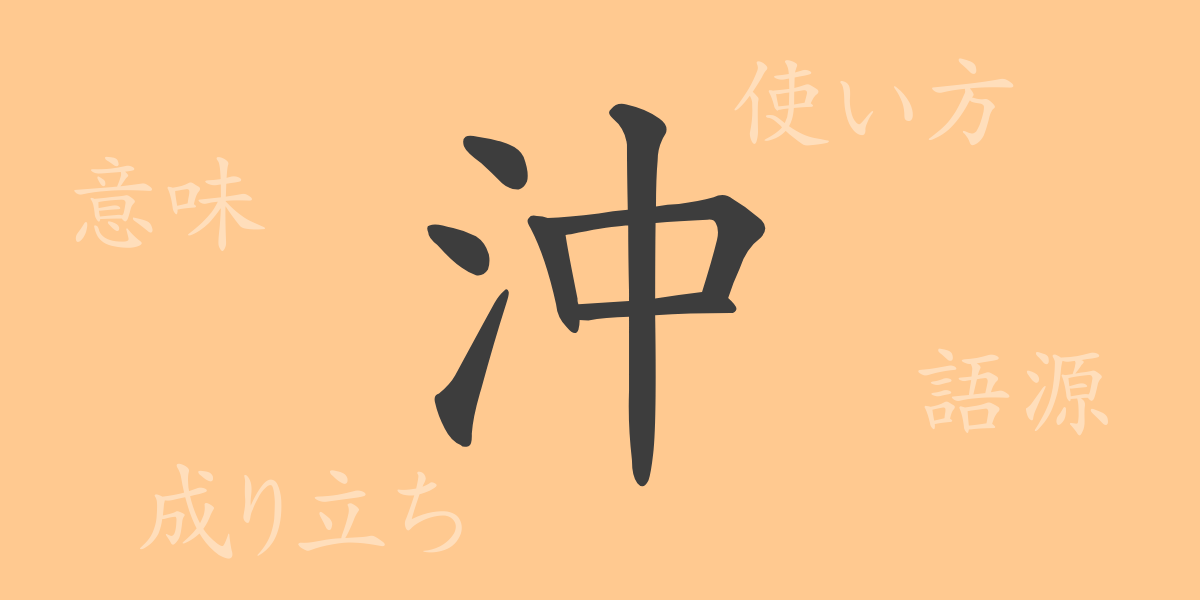The Kanji “沖(おき)” evokes the expanse of the sea, carrying not just the quiet image of a still water surface, but also deeply rooted meanings within the Japanese psyche. In this article, we explore the world of the commonly used Kanji “沖,” from its origins to its current meanings and uses, and even the phrases and idioms related to it.
Origins of “沖(おき)”
The Kanji “沖” originates from ancient Chinese pictographs representing the gathering of water. Initially formed from the character “𣲷,” indicating the rippling surface of water, combined with “氵,” a radical meaning water, it evolved to represent vast and deep water areas, known today as “沖.”
Meaning and Usage of “沖(おき)”
“沖” primarily means “a deep and broad place close to the center of seas or rivers.” However, it also connotes a state of tranquility or the heart of matters. It is commonly used in geographical names like “Okinawa(沖縄),” derived from this Kanji, but also in expressions like “swimming in the deep (沖で泳ぐ)” and “heart’s deep (心の沖).”
Readings, Stroke Count, and Radical of “沖(おき)”
Let’s delve into the readings and structural components of the Kanji “沖.”
- Readings: On’yomi “チュウ”, Kun’yomi “おき”.
- Stroke Count: 7 strokes.
- Radical: Water (水, さんずい).
Phrases, Idioms, and Proverbs Using “沖(おき)”
There are several idioms and phrases that include the Kanji “沖,” each illustrating the rich expression of the Japanese language. Here are a few examples:
- 沖積層(ちゅうせきそう) – Alluvial layers deposited near river mouths where the current slows down.
- 沖合(おきあい) – Offshore, away from the coast and out at sea.
- 沖縄(おきなわ) – A prefecture located in the southwest of Japan, historically known as the Ryukyu Kingdom.
- 沖で泳ぐ(おきでおよぐ) – Metaphorically, to take bold, fearless actions.
Conclusion on “沖(おき)”
The Kanji “沖” seamlessly integrates into our daily life, from its origins to being part of Japanese place names, illustrating its extensive use. Understanding the rich meanings behind this single character allows us to rediscover the depth of the Japanese language. Let us continue to cherish the vast world of “沖,” as expansive as the open sea.

























